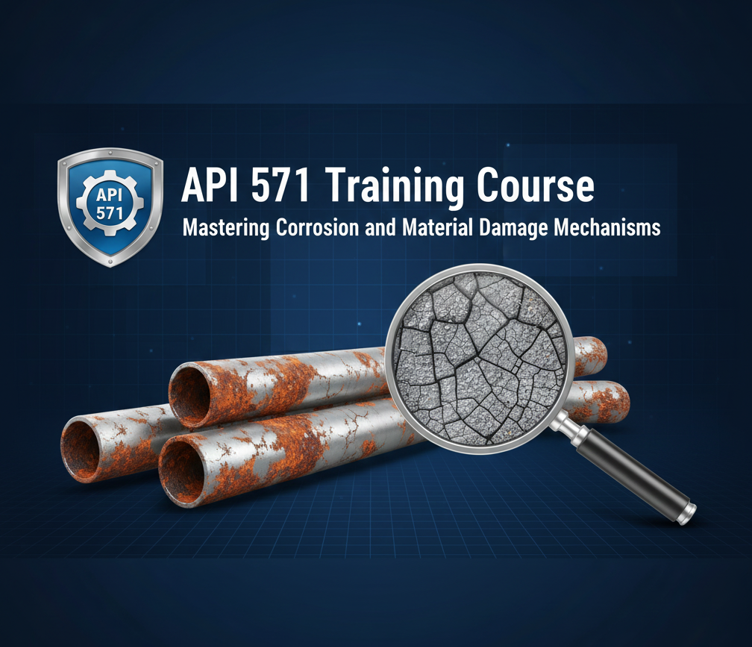Roels:-
- Analyzes various cycles and systems for distinct production of products or changes in the existing production units and develops material and heat balances.
- Prepares economic studies associated with process performance.
- Designs and/or specifies equipment items required to define the process flow sheet or flow system; specifies corrosion-resistant materials of construction.
- Evaluates competitive bids for equipment.
- Evaluates operating data for existing or test equipment.
- It directs flow sheet draftsmen in detailed preparation of flow sheets.
What is role of process engineer
Process engineering is significant in today’s manufacturing world and the engineer plays a central part in the chemical, petrochemical, pharmaceuticals, oil and gas and manufacturing industries. Process engineers are tasked with the creation, management, and enhancement of process and systems to facilitate effective and safe generation of goods or the functioning of structures. Here are some key responsibilities and roles of a process engineer:Here are some key responsibilities and roles of a process engineer:
Process Design: When it comes to the creation of a manufacturing or production processes it is process engineers who are initially involved. He or she strives to ensure that there are effective and cheap ways of developing goods or substances.
Process Optimization: Optimizing current business procedures to work faster, cheaper and to yield higher quality goods and services. All these encompass gather and analyze data, experiment, and put into practice the changes that may be seen fit.
Troubleshooting: Locating problem areas whether an accumulation of inventories, or blocked up processes in production procedures. The main tasks of process engineers are the identification of issues that impact either quality or yield or safety.
Safety and Environmental Compliance: Making sure that these processes conform to the laid down safety requirements and policies on the environment. Process engineers work on creating systems that eliminate giving room for risks or health hazards to occur and which will have minimal effects to the environment.
Quality Control: Supervising the quality of the end products or the services that are being delivered by instituting mechanisms like quality assurance and quality checks.
Scale-Up: Scaling up the process from laboratory or pilot scale to full scale production that is, maintaining the efficiency at reduced cost.
Equipment Selection: Picking out the proper kind of equipment, which may be pumps, reactors, and separators, and in addition defining the exact conditions under which such equipment will operate in a given process.
Data Analysis: Structuring large databases of process data, trends, and variables to drive decisions that will enhance the process.
Documentation: Design and implementation of process maps, work instructions and control specifications.
Collaboration: Cooperating with the mechanical engineers, chemical engineers, operators and the management for effective running of the processes developed.
Process Safety: Accident prevention measures that enhance security of people, structures and the surrounding setting by use of process safety management practices.
Regulatory Compliance: Accomplishing business goals which include remaining current on the industry regulations and standards to ensure all processes are legal and safe.
Energy Efficiency: Basically, it involves the recognition of areas that may require optimization in terms of energy and sustainability in processes.
Project Management: Supervising projects invented on process design, process optimization and improvement initiatives.
Training: Education and training of operators and technicians About new processes and changes on existing ones.
The role of the process engineer is of enormous essence because of the responsibility of a process engineer is to see, design, and oversee the manufacturing and running of an industrial process right from the planning stage to commissioning and even later to a stage where it has to be modified or improved. They are involved in development of the quality of the products outputs, productivity, safety and sustainability of production, and the environment within numerous sectors.
Role of process engineer in chemical industry
Process engineering is very important today’s manufacturing industries and the role of an engineer cannot be overemphasized in the chemical, petrochemical, pharmaceutical, oil and gas and manufacturing companies. Process engineers are entrusted with design, operation and improvement of process and systems for the generation of products or functionality of structures. Here are some key responsibilities and roles of a process engineer:Below listed are the main functions and duties of a process engineer:
Process Design: In the context of the generation of a manufacturing or production processes it is the process engineers whom get involved first.
Process Optimization: Controlling and developing the existing chemical processes in order to optimize the effectiveness and decrease the expenses for the creation of new chemicals with higher quality. This entails data analysis, experimentation and the introduction of process changes.
Safety: Wanting to make sure that chemical processes under development and design do not lie in the sphere of dangerous accidents, fires, explosions and chemical releases. Process engineers apply precaution measures and carry out risk evaluations.
Environmental Compliance: Maintaining that chemical processes meet the set environmental policies, reduced emission of pollution, and waste. After a process has been designed, process engineers are responsibile for designing pollution prevention, which provides new process designs and waste treatment.
Quality Control: Supervision and regulation of the chemical products to be produced to conform to set standard and a means of assessing and evaluating the achievements in the quality assurance processes and quality control techniques used to arrive at the final product.
Scale-Up: Optimisation of processes from laboratory or pilot scale to full scale utilising product quality and safety standards.
Equipment Selection: Determining suitable materials of construction for chemical processes and selecting and specifying the right equipment like reactors, distillation columns, pumps, heat exchangers etc.
Data Analysis: Evaluating the process data to determine areas of characteristics or trends that may be beneficial to maximizing the process variation.
Documentation: Developing complex process documentation starting with the process maps and continuing with the standard operating procedures or the safety manuals.
Collaboration: Overseeing coordination with other departments as chemists, operators, mechanical engineers and managers in executing the chemical processes.
Process Safety Management: Applying process safety management programs such as Process Hazard Analysis (PHA), Risk Assessments and Safety Audits in order to avoid mishaps and to safeguard employees, assets and the encircling atmosphere.
Regulatory Compliance: Being updated with the regulations and standards specific to the chemical manufacturing industry that needs to be followed.
Energy Efficiency: Optimization of the energy and utilities usage, integration of heat using pinch analysis and making the processes more sustainable.
Project Management: Supervising tasks that about the design, change and improvement of processes, as well as the supervision of the corresponding budget, timeline and resources needed.
Training: Training and developing the operator and technicians on new processes, equipments and safety procedures to be followed.
In the chemical industry, process engineers are responsible with challenging tasks and objectives such as innovation, increase of process efficiency, quality as well as safety and environmental concerns. Their work directly gets into the success and competitiveness of manufacturing chemical operations.
Complete Oil and Gas Industry Practical Training Course
Complete Oil and Gas Industry Practical Training Course is a self-learning, practical program powered by industry expertise. Log in to explore, practice real scenarios, and grow industry-ready skills.
- pipenet
- pipesim
- HTRI
- olga
What does a process engineer do
A process engineer is supposed to work, improve and control the procedures of the production in order to obtain the desired outcome in as shortest time and safely as possible while maintaining the quality of the end product. They solve problems, review the information and make changes where necessary in different sectors such as production, chemicals and electrical energy.
How to become process engineer
 Becoming a process To become a process engineer in the oil and gas industry or any industry for that matter one requires education, training and experience. Oilandgasclub provides information and training that are designed to enable people to get all the necessary knowledge and skills to work as a process engineer in the oil and gas industry. Here's how to become a process engineer with the assistance of Oilandgasclub:Here's how to become a process engineer with the assistance of Oilandgasclub:
Becoming a process To become a process engineer in the oil and gas industry or any industry for that matter one requires education, training and experience. Oilandgasclub provides information and training that are designed to enable people to get all the necessary knowledge and skills to work as a process engineer in the oil and gas industry. Here's how to become a process engineer with the assistance of Oilandgasclub:Here's how to become a process engineer with the assistance of Oilandgasclub:
1. Educational Preparation:
Enroll in a Relevant Bachelor's Degree: To become a qualified engineer, you must begin by getting your bachelor’s degree in the proper recognized engineering discipline. Chemical engineering is one of the most prevailed specialties in practice of process engineering in the Oil and Gas sector. Mechanical engineering or petroleum engineering or any other field of engineering can be other good examples.
Enroll in a Relevant Bachelor's Degree: To become a qualified engineer, you must begin by getting your bachelor’s degree in the proper recognized engineering discipline. Chemical engineering is one of the most prevailed specialties in practice of process engineering in the Oil and Gas sector. Mechanical engineering or petroleum engineering or any other field of engineering can be other good examples.
2. Specialized Training with Oilandgasclub:
Investigate how you can learn about process engineering and the courses/training from Oilandgasclub. These programs are meant offer specific information on competence in certain sectors of operation.
3. Coursework:
Ensure you take courses that are relevant to process engineering thus taking subjects such as fluid dynamics, thermodynamics, heat transfer, process control, and chemical reaction engineering.
4. Gain Practical Experience:
It is essential to find an internship or a co-op, ideally, through the university, but it is also possible to search for the position directly with the companies operating in the oil and the gas industry. The practical experience for any person is very important for his or her carrier.
5. Develop Technical Skills:
With the help of the available training and courses of Oilandgasclub, one can build proficiency in the particular software that is used in process engineering of the oil and gas industry.
6. Join Professional Organizations:
You might also want to join any professional societies of the oil and gas industry like The Society of Petroleum Engineers. Some of these organizations supply networking forums and connections to association occasions.
7. Build a Portfolio:
The coursework, projects, and practical experiences should be recorded on a portfolio with a view of sharing them with employers for employment opportunities.
8. Apply for Entry-Level Positions:
Being a beginner, it is advisable to seek job openings for process engineering having little to no working experience in the oil and gas sector. Such posts may be as a process engineer train, junior process engineer among others.
9. Gain Experience:
While working for these low ranking jobs, concentrate on the experience in managing processes in the context of the oil and the gas industry. Acquaint oneself with the different procedures and pieces of equipment in the respective industrial fields.
10. Continuous Learning:
It remains essential for the process engineers specializing in the oil and the gas industry to abide by their continuing education requirements so as maintain up-to- date knowledge on the existing trends, technologies and practices in the field. Based on the information above, it can be realized that oilandgasclub offers a vast amount of resources and possibilities to a process engineer to turn him into a learner in the sphere of continued improvement. Here's how you can pursue continuous learning with Oilandgasclub:Below are the ways you can use Oilandgasclub in order to engage in continuous learning:
Explore Specialized Courses: Oilandgasclub offer the process courses and training sessions for the process engineers in the oil and operation sector. These course areas focus on process safety, design, analysis, and project management in Process Engineering.
Stay Informed: Use articles, publications and other materials available on Oilandgasclub to be up-to-date with the oil and gas industry information.
Attend Workshops and Webinars: Attend business trainings such as, workshops, seminars and webinars in oil and gas club. These events normally include information pioneers who can talk and discuss issues related to a specific subfield.
The forum of that group known as Oilandgasclub engages process engineers in enhancing their learning by getting access to courses, relevant information and other professionals operating in the industry. Embracing lifelong learning will ensure one remains relevant and can easily climb the career ladder while positively impacting the oil and gas industry.
You can get the particular training from the Oilandgasclub to be provided with the suitable and necessary knowledge about this kind of job in the oil and gas industry as a process engineer. When associated with proper education, working experience, and networking, this training can give you the desired results in the field of process engineering for the oil and gas industry.
what is a process engineer
 The process engineer in the oil and gas sector is a technical expert dealing with design, improvement and control of the various processes connected with the production, processing, transportation, and marketing of oil and natural gas. They function in different operations of the oil and gas sector such as up-stream which comprises of exploration and production, mid-stream which entails transport and storage and the down-stream which covers processing and distribution of the oil products. Their main concern is to provide for secure, effective, and economic production, treatment and shipment of hydrocarbons.
The process engineer in the oil and gas sector is a technical expert dealing with design, improvement and control of the various processes connected with the production, processing, transportation, and marketing of oil and natural gas. They function in different operations of the oil and gas sector such as up-stream which comprises of exploration and production, mid-stream which entails transport and storage and the down-stream which covers processing and distribution of the oil products. Their main concern is to provide for secure, effective, and economic production, treatment and shipment of hydrocarbons.
Here are some key responsibilities and tasks that a process engineer in the oil and gas sector may be involved in:Here are some key responsibilities and tasks that a process engineer in the oil and gas sector may be involved in:
Reservoir Engineering: In the upstream sector teaming with process engineers, one may need the services of reservoir engineers to enhance the extraction of the hydrocarbons from the underground reservoirs. This includes designing well systems, assessing reservoir performance, and implementing enhanced oil recovery (EOR) techniques.
Facility Design: Professionals in this field of engineering mostly deal with generation of production facilities for products like oil and gas plants, offshore structures and onshore structures. They state what equipment, pipelines, and instrumentation they desire to have.
Process Optimization: An ongoing process of seeking to increase the operational efficiency and performance while at the same aiming at minimizing on process time and costs. This involves the aspects of analysis of data and formulation of various models; and the process of change of concepts.
Safety and Environmental Compliance: To ensure all the processes and facilities are FREE from any negative effect to safety and to environment standard. In addition to implementing safety measures and the monitoring of the environment risk analysis is conducted by process engineers.
Process Control: Formulating and implementing methods of monitoring and controlling the management and operation of numerous procedures for safe running of the processes.
Pipeline and Transportation: Pipelines operations which involves assessment of flow characteristics through pipelines coupled with the rate and pressure at which the products oils and gases will be transported, bearing in mind how the whole transport of the products will be done.
Refinery Operations: Therefore in the downstream operation the process engineers are involved in the conversion of the crude oil into different petroleum products such as gasoline, diesel, petrochemical products among others within all the aforesaid refineries.
Instrumentation and Automation: Establishing various systems, especially the instruments and automation systems used in monitoring the procedure and action at related distance and actual time.
Process Safety Management (PSM): The sustenance of proper PSM corporate standards including hazard identification, risk estimation, and safety check activities to avert mishaps so as to conserve the lives of human beings and other resources.
Energy Efficiency: It means that the major areas of focus will include; analysis of prospects to shed energy as much as possible, management of heat recovery and the general sustainable nature of the presented process.
Regulatory Compliance: New developments and status on the regulations, standards and codes which applies to the process engineering of the oil and gas industry.
The specialists, who can be referred to as process engineers within the field of the oil and the gas production to a certain extent, bear vast amount of responsibility for the activity results, controlling, safety, and environmental impact within the sphere. Most of them work in groups, and while performing their tasks, give appropriate solutions with regard to the peculiarities of the sphere of oil and gas.









